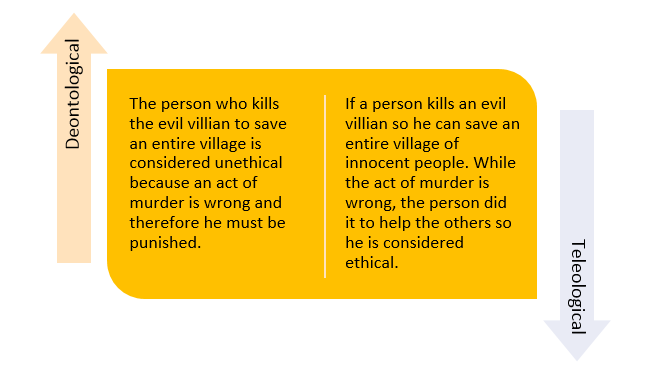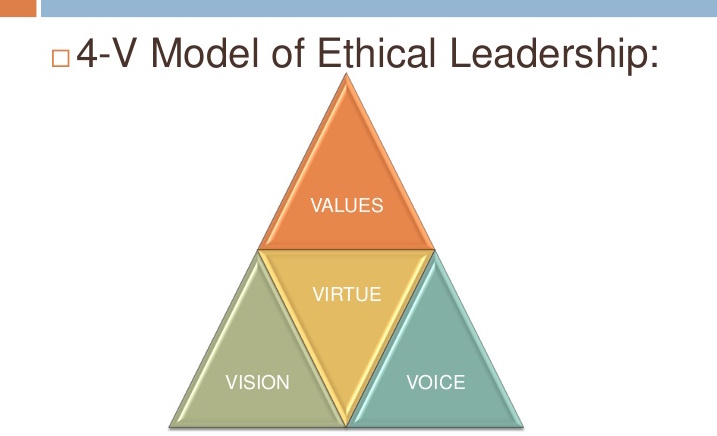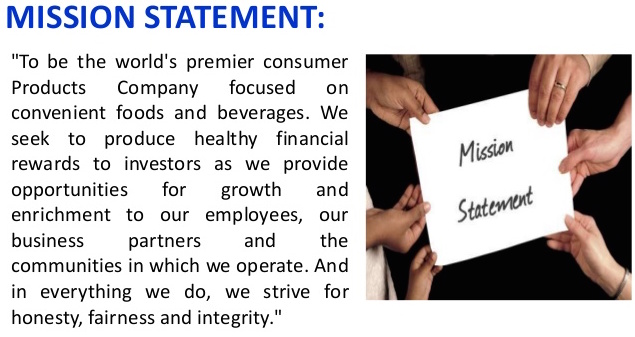s
In this blog I would like to discuss about “Ethical Leadership”. How people perceive someone’s actions as ethical. As regards to an organisation, this would be – how would a leader or CEO of the company be seemed as an ethical leader in leading the company?
Leadership is the process of influencing others to understand and agree about what needs to be done and how to do it, and the process of facilitating individual and collective efforts to accomplish shared objective (Mary Kay Copeland , 2015).
Meanwhile, ethical leadership is related to increased employee motivation and more positive work attitudes; and an ethical leader is a leader who is able to act fairly and justly. They are perceived as caring, truthful and principled persons who make objective decisions and who communicate the importance of ethics and ethical behaviour to their followers (Lisa C. Ehrich , Jessica Harris , Val Klenowski , Judy Smeed , Nerida Spina , 2015)
Nevertheless, Mullins and Christy (2016) stated that there is no single view in general ethics of what makes something right or wrong. Regarding to this, two principles would be used as a fundamental or basic belief in coming to a decision of whether a leader is ethical or unethical.

2 Principles of Ethical Leadership

The first principle is Deontological or known as rules, which refers to the evidence of actions that taken by someone, not to the consequences of their actions (Ethical Leadership In Business, 2017). The Deontological point of view carries that goodness or badness is evident only in the action itself (Mullins, L. and Christy, G, 2016).
For example, under the Code of Conduct of PepsiCo was listed that, all employees and Board of Directors of the company required to obey all laws in promoting the company’s position relative to government authorities and in making political contributions. The company would be deemed as ethical if the members of the company following the listed regulations regarding to politic. In other words, so as long as the company is following certain rules, they would be viewed as ethical. Breaking rules would be considered as unethical. Similarly with the figure illustrated above, it said that the person who kills the evil would be considered as unethical because of the murdering action without bothering the consequences.
The second principle is Teleological or consequentialist, this principle relates to the consequences or the end result of an action. The more good result an act produces, the better or more right that act. A consequentialist view of ethics accommodates that the goodness or badness of a proposed action is evident only in the consequences of that action (Mullins, L. and Christy, G, 2016).
For example, the CEO of Enron Corporation, American energy, commodities, and service company was found out that the CEO of the company was hiding the financial losses of the trading business and other operations where this company was considered as unethical because the corporation does not disclose the true information to public and contributes many disadvantages (consequence) to other parties, especially to the stakeholder of the company.
Model of Leadership

In addition, the fundamental of these principles based on someone’s value (one of the model of leadership). Other than value, there are another three model of leadership, which are voice, vision, and virtue (Centre for Ethical Leadership, 2017). However, in this blog only 1 model that would be focused on. Values is about someone’s ideas as to what is right, good or desirable and influence behaviour, perception and motivation (Ethical Leadership In Business, 2017). That values are form through various factors, such as from the environment where they live, area of study or education that they are studying, level of education they have, and so forth. From the value that someone has, it would then determine the way they behave and how responsible they are with their actions.
Concerning to value, the CEO of PepsiCo, Indra Nooyi said that
“ as a leader, ethics are so important; because you can be courage, communicate beautifully and have competence, but if you are unethical, no body would follow you”

From discussion above, can be could be concluded that the way people perceive of someone’s behaviour would significantly depend on someone’s value or believes that they have, where people might make an assumption of “ethical” either based on Deontological or Teleological point of view.
I personally agree that it is crucial for a leader to be ethical in leading the company. Since, no matter how successful an organisation, if they are not ethical they might put the continuity of their business in danger.
References
Center for Ethical Leadership. (2017). Concepts and Philosophies. [online] Available at: http://www.ethicalleadership.org/concepts-and-philosophies.html [Accessed 4 Feb. 2017].
Investopedia. (2016). Enron Scandal: The Fall of a Wall Street Darling. [online] Available at: http://www.investopedia.com/updates/enron-scandal-summary/ [Accessed 4 Feb. 2017].
Jen-Wei Cheng , Shu-Ching Chang , Jyh-Huei Kuo , Yu-Ha Cheung , (2014) “Ethical leadership, work engagement, and voice behavior”, Industrial Management & Data Systems, Vol. 114 Iss: 5, pp.817 – 831
Lisa C. Ehrich , Jessica Harris , Val Klenowski , Judy Smeed , Nerida Spina , (2015) “The centrality of ethical leadership”, Journal of Educational Administration, Vol. 53 Iss: 2, pp.197 – 214
Mary Kay Copeland , (2015), The Importance of Ethics and Ethical Leadership in the Accounting Profession, in Cynthia Jeffrey (ed.) Research on Professional Responsibility and Ethics in Accounting (Research on Professional Responsibility and Ethics in Accounting, Volume 19) Emerald Group Publishing Limited, pp.61 – 98
Michel Dion, (2012) “Are ethical theories relevant for ethical leadership?”, Leadership & Organization Development Journal, Vol. 33 Iss: 1, pp.4 – 24
Mullins, L. and Christy, G. (2016). Management & Organisational Behaviour. 11th ed. New York: Pearson, pp.523-524.
OnlineMBA (2017). 10 Most Ethical CEOs of 2016 | OnlineMBA.com. [online] OnlineMBA.com. Available at: http://www.onlinemba.com/blog/blog10-most-ethical-ceos-in-corporate-america/ [Accessed 18 Feb. 2017].
Hi, Mitchelle, a very good issue you explained! I just wondering, which rule should be based on the deontological theory? since each of us has a different mindset and leads to a different perspective. And from your opinion, which theory will work effectively in nowadays situation?
LikeLike
Hi Jajulin, thank you for participating in this blog. Regarding to your first question, i think that someone’s action would be fallen under deontological theory, when people perceived ethical based on someone actions, without bothering the result of the action. One example can be found in blog, if a man kills a monster, he would be considered as unethical because he KILLS the monster, although the man has a good intention to protects the society. For your second question, i would say it really depends on the events and the circumstances of the event. If the actions contribute more benefits for the majority of people then i would say a teleological.
LikeLike
Hello, i have two questions:
1. I thought that ethical leadership is a big topic, since leadership exist in every organizations, such as company, government, non-profit organization, religious organization, etc. Is there any differences between ethical leadership in those organizations with ethical leadership in the company?
2. What is your opinion about dictator? Is it ethical or unethical?
LikeLike
Hi, thank you for your enthusiasm.
1. I would say that they way people perceived the ethical or unethical leadership would again based on the 2 principles that has been demonstrated in the Blog above, however, the ethical code of conducts of each company or industry might be different from one another. As Ethical is relating to the moral of someone’s action relating to a specified group, field, and form of conducts.
For example, in PepsiCo code of conduct list, employees are prohibited from giving, offering, or receiving any gift that may cause unfair advantage, especially cash gifts. If employee of PepsiCo received any gift that might cause unfairness for others then that person would be seemed as unethical. Meanwhile, this code of conduct might be seen as ethical in other company or industry.
Answering to second question, I personally would first look at the actions and decisions taken by the leader, if the rules or regulations created delivers many advantages and prosperity for the community as overall then, it would be considered as ethical. On the other hand, if the decision created is for the personal benefits and deliver many disadvantages or problems for the society, then it would hardly considered as ethical.
LikeLike
Really helpful and easy to understand. Thanks 🙂
LikeLiked by 1 person
Hi Mitchelle
Which one will you choose and why you choose it if you have to choose between deontological approach and teleological approach if you have to judge some event that looks unethical
LikeLike
Hi Alwen, thank you for your question 🙂
I Personally more to teleological approach. However, still the decision in determining one’s action as ethical or unethical is dependent on the circumstances of the action.
LikeLike
I agree with ethical leadership.
In my opinion, a company should be able to show the society that the brand of the company is famous as a good leading company.
For example, if Company A is famous as a very successful brand. Therefore, there should be an honorable leader who has succeed to bring the company to reach their main goals.
That leader must be someone who has ethical leadership like you have mentioned before.
In order to have good result, there should be good action at first.
Ethical leadership is something positive, unethical leadership is something negative.
Last but not least, how to be an ethical leader..? A leader should be a listener and helper of the company, in other words, serve to lead.
Be the example, bring the company brand into every action.
A good brand is from a good company.
A good company has a good leader.
A good leader has ethics.
LikeLike
Hi Alice, thank you for your comment and question. Personally,a good leader should be able to respects its employee or followers and do things in for the good of the majority and being transparent.
LikeLike
Hi Mitchelle, it is a very good and deep explanation on leadership. I do agree about what you have just interpreted. But it seems so hard to get the final conclusion what ethical leader is. I have made an easy illustration to support my question. “The ethical company leader should expand the project to enhance its business. The project might give more money, value to its company, and longer continuance of its business. To get the project, the ethical company leader must get the permit from government while the corrupt goverment leader asks for money. This situation involved many employees started from legal dept, accounting dept, project dept, etc.”
I have a question to help us find out the explicit description of ethical leader. What is ethical action on this case? Should the ethical company leader give money to the corrupt government leader?
Thank you Mitchelle. Hopefully, this illustration might streghtened your idea.
LikeLike
Hi Robby, thank you for your question. As i have stated before, the perspective of ethical would be based on the 2 principles that i have explained in the blog. it is up to yourself which principle do you believe in between deontological and teleological. If you believe in deontological you would concern ethical based on the action of someone without putting attention to the result or consequence to the result.
regarding to the case that i gave. i would say corruption is seem as an ethical behavior. However if the action of those corruptions do not give significant bad influences to the majority of people, then that action would be put as immaterial although it’s not fully ethical
LikeLike
Hi Mitchelle, Nice explanation you got here.
I really agree that “there is no right way to do a wrong thing”.
I think as an ethical leader, they should believe that doing what’s right can’t be compromised and as you said an ethical leader is a leader who is able to act fairly and justly.
I just want to ask a simple question.
You are talking a lot about ethical leader, so can you tell me about your favorite ethical leader? what unique value does he/she have as a leader?
Thank you
LikeLike
Hi s,
Yes, one example of ethical leader is Indra Nooyi. as an ethical leader she know to do the right things. the right things means, how she consider about the employee’s satisfaction and prosperity in the organisation, the impact that the company might deliver to the environment. I hope my explanation will help your understanding.
LikeLike
Haii
LikeLike
Hi michelle! Great explanation on the ethical leadership theories. You mentioned that leaders unethical behaviors can put their business in dangers, what are the implications? How should a business manage this? Thank you.
LikeLike
Hi Nadia, yes, one example that i mentioned was Enron, as the CEO of the leadership manipulated the loss of the company to the public; where this unethical actions distribute significant disadvantages to the stakeholders, and this event put the business in dangerous situation. where public lack of trust to the company.
In order to manage this, it is better for the company to disclose true information to the public.
LikeLike
Hi Mitchelle, You said that it is crucial for a leader to be ethical in leading the company and I agree with that statement. Based on your example about PepsiCo, as long as the company is following certain rules they would be viewed as ethical. Do you have any experience or example about how leaders can communicate the firm’s rules to the employees?
LikeLike
Hi Mitchelle,
This is a really interesting blog.
Are there any impacts of unethical leader besides the business reputation?
Cheers!
LikeLike
Hi Zakitazizah, thank you for your question. There are severals bad impacts that might impact to the business, such as the lack of trust of public to the company, and this might also impact to the employee satisfaction, where the employee will lack of their confidence working in the company, and might impact their reputation as well in applying job to another company.
LikeLike
HI Michelle, great blog! do you know any unethical company that still success until now? and why?
LikeLike
Hi Giany, thank you for your question,honestly, there are a lot of unethical companies that still exists in my country, where most of them are MSE’s, such as family business.
LikeLike
Hi Mitchelle.
What do you think – in a profit driven society are companies trying to act ethically genuinely or they just use ethics as just another marketing tool?
LikeLike
Hi Giany, thank you for your question,honestly, there are a lot of unethical companies that still exists in my country, where most of them are MSE’s, such as family business.
LikeLike